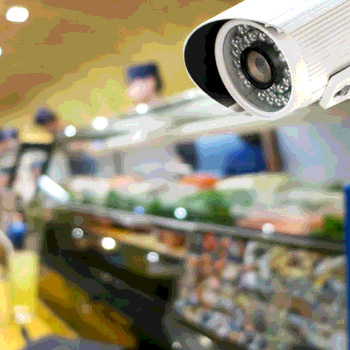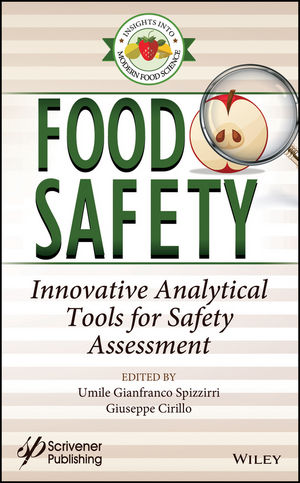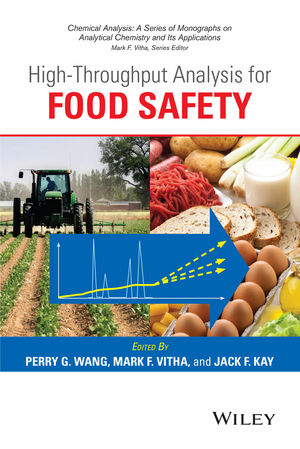Food Defense Planning – For What Purpose?

U.S. Special Forces operators have a saying: “Slow is smooth…smooth is fast.” What in the world does that mean? More importantly, what can food corporations learn from these very elite warriors? The U.S. Special Operations Command is responsible for executing missions that conventional forces are neither equipped nor trained to handle. In other words, they are trained for the most difficult and high-consequence missions. Without trivializing in any way their mission, let’s transpose for a moment the idea of high-consequence mission realities onto the kinds of things that might be encountered by the food and agriculture industries as they make food defense plans.
Two observations: Competition on a global scale is brutal for food and agriculture, and real adversaries are expanding in both numbers and capabilities. This means that food defense must become more robust in a very timely and yet economical manner. Global competition means budgets are tight, and fiscal constraints are an ongoing reality. Adversaries have fewer constraints. In the realm of food defense, the defenders have to be right every time. Adversaries, on the other hand, only have to overcome defenses once to achieve their goals and do damage.
Adversaries want to act before defenses are made robust and fully implemented. That gives them an advantage. In an attempt to get ahead of the threat curve, corporations may erect defenses too rapidly or without sufficient planning. As a result, their lean security budgets might be squandered. Worse yet, the adversary might win.
When I was a young person, it seems as I look back, I was always in a hurry. If I had a goal, I charged ahead, sometimes winning but often failing, because I didn’t have a plan and hadn’t thought about my next move. As an older and hopefully wiser person, I have learned that goals are best met when appropriate time is taken in the planning stage, before actual mission execution is even considered. Action without planning often leads to disaster. On the other hand, too much planning can be a problem. In other words, planning always has to be followed by action.
We’ve all known people who can talk a good game but never actually get past the thinking stage. Put differently, no decision or a decision that is inordinately delayed is in fact a decision not to act. In matters of food defense, that choice could prove fatal to a real customer. On a larger scale, the choice not to act can destroy a brand.
Food defense, in many ways a young discipline, has always been important for corporations, because they have occasionally experienced product tampering, actual or threatened. Food defense has gotten a higher profile recently as regulatory requirements redefine and codify its meaning and scope. Results of new regulations have been mixed; large corporations on the whole are pretty comfortable in their planning (usually having the manpower to deal with the scope of threats and the legal requirements), but small and medium-size businesses struggle. They struggle not because they lack motivation or intent, but because compliance requires “days and dollars,” beyond what they are already doing. More work piled upon an already full load sometimes leads to mistakes, which threaten company image and damage profitability.
Wait too long to make decisions, however, and the adversary gains an advantage. The resulting damage, whether caused by delay in planning or by impulsivity, impacts both corporate liability and, potentially, consumer safety.
How, then, do Special Operations work and how can these principles be applied to food corporations? First, remember that threats always have both spatial and temporal elements. In corporate security terms, this means adversaries can change both the character and level of threat very rapidly, depending not only on their own abilities and access, but also in part on how you engage both the situation and that potential threat actor. Special Operation teams always seek to take the advantage away from the adversary, defeating them before they are able to act.
Never forget, the ongoing reality is that the greatest threat for any food corporation is the insider. Fixed food defenses—closed circuit security cameras being one example—can and do serve an important purpose, particularly at critical security points (e.g., product concentration points), but they can become a liability if they are depended on too completely or considered all that is necessary for effective food defense. Food defense threat actors, particularly insiders, seek knowledge of physical defenses and planning strengths and weaknesses. As they seek this information, patterns of behavior are made manifest, if one knows what to look for.
Knowing this, food defense operators, like Special Forces operators, must train and work as a team so they can both detect and respond seamlessly. Timely planning has to be translated into timely action. Each member of a Special Forces team serves a specific purpose, but also cross-trains, enabling them to step in and take over a different role if a team member or supporting element is incapacitated. Food corporations must take the same approach. Teams have to be built and cross trained so gaps do not develop.
Like so many things in business or the military, most everything depends on the individual acting properly and in a timely manner. A highly trained and motivated individual is irreplaceable and can do much to make a bad situation better. Don’t expect technology to take the place of a highly trained individual; a broken piece of technology is just that—broken and therefore of no use. Technology, unlike a human being, can’t adapt, improvise and overcome. Again, it’s all about the people.
Suppose for a moment that a key element of a food defense plan is dependent on that aforementioned security camera. A thinking adversary might ensure the camera is not working when he or she wants, even for just for a moment. Remember that bad things can and often do happen very quickly. For any food defense plan to be effective, rapid detection and response must be possible. Proactivity must always be a goal. Think here of the Special Forces team. Take the advantage away from the adversary. Detecting and neutralizing a threat before it has matured ensures the best outcome.
Planning and execution must incorporate redundancy and overlap to ensure vulnerabilities do not increase, should a key security element fail (which is bound to happen, as history proves). The same is true for personnel. If Joe has the responsibility of being the food defense “eyes” in a particular area of a food processing plant, what happens when Joe doesn’t come to work? Good food defense plans overlap both defensive technologies and personnel.
Food and agriculture adversaries are not going to go away. Insider threats will always persist, and external threat actors like ISIS and other terrorist groups will seek to use food and water as a means to achieve their desired effects. In response, food corporations from the smallest mom and pop operations to the largest multi-national corporations will have to make food defense investments commensurate with the level and nature of the threats. As part of this effort, food corporations also will need to invest in Intelligence, meaning they will have to start looking for those threats that are beginning to mature, whether internal or far afield.
The natural tendency has been to depend on the government and law enforcement to give warnings. This will continue, but increasingly corporations are realizing they can’t necessarily depend on government warnings, since the government’s Intelligence responsibilities are so widespread and focused. Developing threats directed toward food and agriculture may not be passed on to food and agriculture corporations soon enough to prevent food defense failures.
We at the Food Defense Working Group strive to fill in some of the intelligence gaps that exist between corporations and government. In the coming year, food and agriculture-related intelligence efforts will be increased. The best way to keep posted on developments is to go to our website at aufsi.auburn.edu/fooddefense/, follow our blog at aufsi.auburn.edu/fooddefense/blog/ and friend us at www.facebook.com/fooddefensegroup/. Food defense is what we do, because in the end it is in everybody’s interest that is done right.
Robert A. Norton, Ph.D., is a professor at Auburn University and chair of the Auburn University Food System Institute’s Food Defense Working Group. A long-time consultant to federal and state law enforcement agencies, the Department of Defense and industry, he specializes in intelligence analysis, weapons of mass destruction defense and military-related national security issues. For more information on the topic or for more detailed discussions about specific security related needs, he can be reached at nortora@auburn.edu or by phone at 334.844.7562.
Looking for a reprint of this article?
From high-res PDFs to custom plaques, order your copy today!








